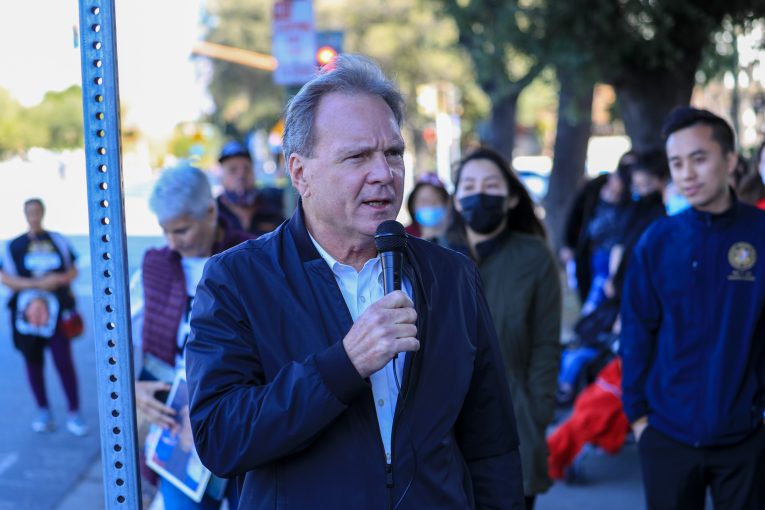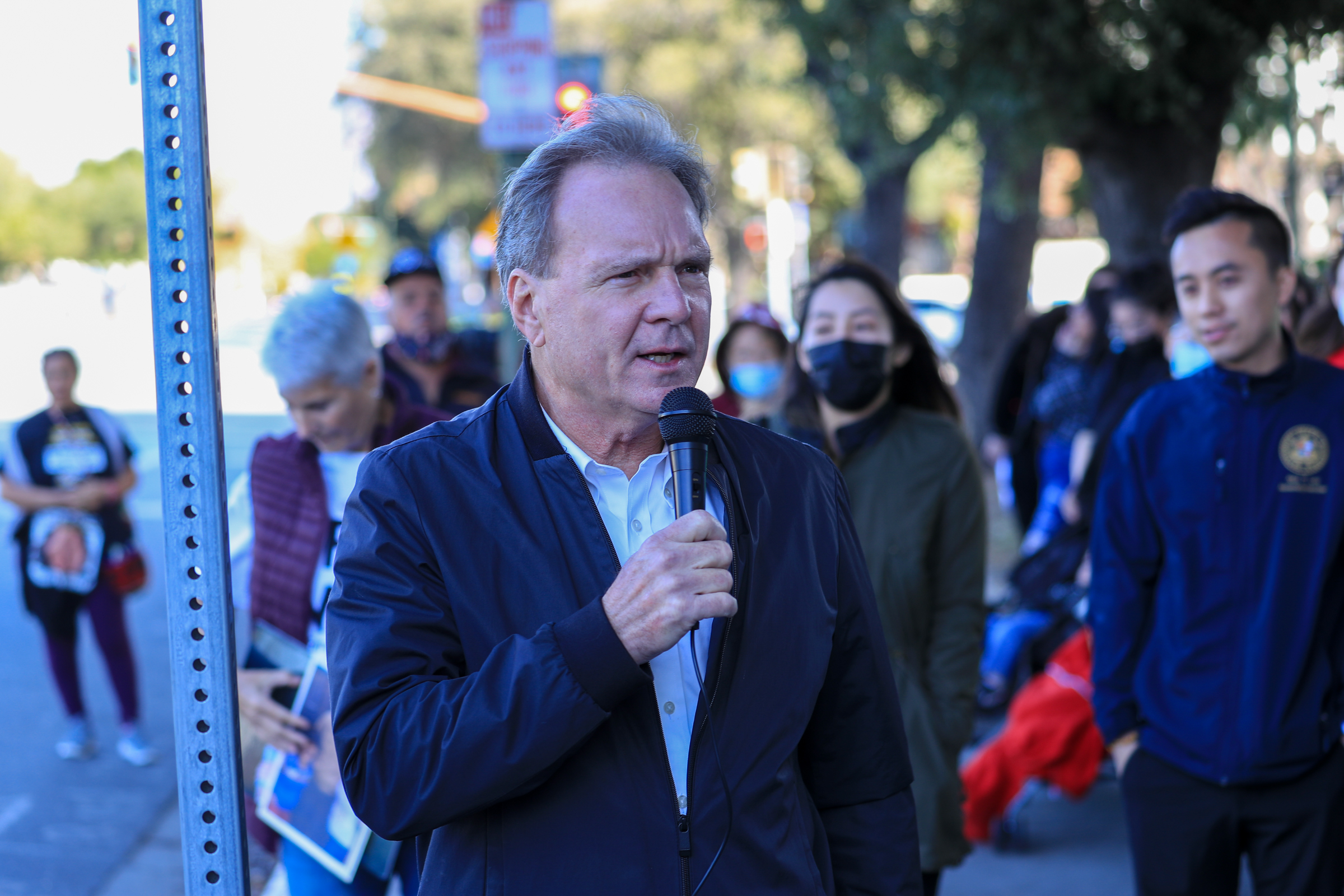

By David M. Greenwald
Executive Editor
This week Governor Greg Abbott of Texas injected himself into a California legislative proposal that would allow judges to resentence people who have spent at least two decades in prison “a chance to prove they are fully rehabilitated.”
In response to a story from the right-wing publication, the California Globe, Governor Abbott on Wednesday tweeted, “Outrageous. California is proposing a law to release death row inmates from prison — HIGHLY dangerous criminals! This will never happen in Texas. Working with the Texas legislature, we will keep dangerous criminals behind bars.”
Outrageous.
California is proposing a law to release death row inmates from prison — HIGHLY dangerous criminals!
This will never happen in Texas.
Working with the Texas legislature, we will keep dangerous criminals behind bars.https://t.co/o773sIv7YA
— Greg Abbott (@GregAbbott_TX) April 12, 2023
The bill in question was Senator Dave Cortese’s SB 94.
Senator Cortese responded, “Gov. Abbott trying to look tough after attempting to pardon a man convicted of killing a Black Lives Matter protestor.”
He also noted that, last year, Gov. Abbott issued a statement calling to “reduce recidivism” with “clemency to Texans who have shown their dedication to changing their lives.”
Cortese’s bill would allow judges to review life-without-parole and death penalty sentences for people who have been incarcerated for at least 20 years.
“SB 94 would save the state hundreds of millions of dollars each year by giving elder inmates the right to judicial review,” said Senator Cortese this week as his bill cleared a key committee hurdle.
“The recidivism rate for this inmate population is zero. That shows us that people age out of crime and many have done the work to rehabilitate after decades behind bars. This inmate population deserves a path to parole.”
SB 94 would allow a person to petition for judicial review if their offense occurred  before June 5, 1990, if they have served a minimum of 20 years, and they have been convicted of a special circumstance enumerated in Penal Code section 190.2. If a person qualified, the court would be able to modify the petitioner’s sentence and apply changes in law that reduce sentences or provide for judicial discretion—unless the court determined that the petitioner was an unreasonable risk to public safety.
before June 5, 1990, if they have served a minimum of 20 years, and they have been convicted of a special circumstance enumerated in Penal Code section 190.2. If a person qualified, the court would be able to modify the petitioner’s sentence and apply changes in law that reduce sentences or provide for judicial discretion—unless the court determined that the petitioner was an unreasonable risk to public safety.
Research shows there is little risk for elderly individuals to re-offend or recidivate upon release. For individuals previously sentenced to life without parole who were granted a commutation and released, the recidivism rate is zero percent.
The majority of people serving a life without parole sentence are classified as low risk, according to California Department of Corrections and Rehabilitation. In fact, 88% of people serving life without parole have been assessed with the lowest risk score on CDCR’s California Static Risk Assessment tool.
Cortese further noted that the number of people who would become eligible are small, the recidivism rate for those elderly people is near zero, and, moreover, the “[b]ill doesn’t automatically let people out of prison. It’s judicial review to consider those who have fully rehabilitated.”
The Vanguard spoke with Daniel Trautfield with the Felony Murder Elimination Project.
He told the Vanguard that groups like Crime Victims United had met with them and indicated that they were going to start attacking the Senator.
“The bill is really exceedingly basic, it allows judges to review sentences that were handed down for events that occurred before 1990,” he explained. That means that anyone who would be involved in the bill, their offense dates to over 30 years ago. It has a 20 year requirement for how much time is served.”
And it requires judicial approval.
“It’s basically a judicial check,” Trautfield explained. “There are people who were sentenced decades ago for the most part.”
It gives the judge a chance to determine if the sentence is fair.
Furthermore, judges already have the ability to “exercise his or her already existing power to reduce a special circumstance and give someone the chance to go to a parole board and potentially, or eventually get released after going to a parole board.”
He added that “there’s absolutely no mechanism of release through this bill. There’s only judicial review. And judges already have the power to look at life without parole cases like this. So it’s all, it really just creates a petition for someone to say, hey, I want to appear before you and have my sentence looked at.”
Why is Abbott getting involved?
Trautfield noted that Governor Abbott himself “said that they wanted to reduce recidivism and that it was important for there to be clemency for Texas, for people who are serving sentences in Texas that are extreme.”
Like others he believes Abbott is “using this as a tool to distract from his recent scuffle with public sentiment over his horrifyingly racist decision to push a pardon through in the case of the individual who killed a Black Lives Matter protester.”
As a story that appeared in the Austin American-Stateman reported, “Less than 24 hours after a Texas jury convicted Army Sgt. Daniel Perry of murder in the 2020 shooting of a protester, Gov. Greg Abbott announced on social media Saturday that he will pardon Perry as soon as a request ‘hits my desk.'”
The story continued, “The unprecedented effort, which Abbott announced to his 1 million followers on Twitter, came as Abbott faced growing calls from national conservative figures such as Fox News host Tucker Carlson and Kyle Rittenhouse, who was acquitted in the shooting deaths of two Wisconsin protesters in 2020, to act to urgently undo the conviction.”
“Texas has one of the strongest ‘Stand Your Ground’ laws of self-defense that cannot be nullified by a jury or a progressive District Attorney,” Abbott said in a tweet. “I will work as swiftly as Texas law allows regarding the pardon of Sgt. Perry.”
That decision has caused a fire storm.
As Smart Justice California tweeted this week, in response to the Governor’s attack on Cortese and his bill, ” The same person who wants to pardon a white man convicted of murdering a Black Lives Matter protestor also thinks it’s a bad idea to let CA judges take a second look at extreme sentences mainly served by people of color?”

